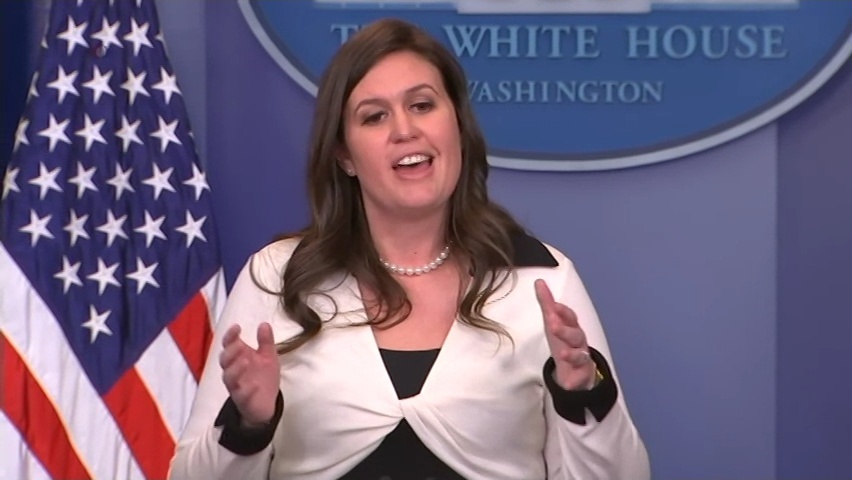A seemingly minor lawsuit that the D.C. Circuit dismissed with little effort last week had an important and unresolved question about national security lurking in the background: whether courts can review the executive branch’s decision to take away a person’s security clearance. That question, which involves thorny issues about the separation of powers, is particularly relevant in light of recent threats by President Trump to revoke the clearances of some of his high-profile critics. It’s a question the D.C. Circuit may need to answer someday soon.
The case, Palmieri v. United States, involved an engineer who worked for a government contractor. After he was evasive about his contacts with two citizens of Syria, the Department of Defense suspended his security clearance. The engineer sued numerous federal agencies and officials, alleging a vast conspiracy to destroy his career. The district judge dismissed the lawsuit, and the D.C. Circuit agreed that his claims were either forfeited or frivolous. (For more on the case, see Circuit Breaker’s Opinion Roundup.)
But the issue lying under the surface—the government’s decision to take away a security clearance—could not have been more timely or significant.
The day before the court released its opinion, Sarah Huckabee Sanders, the White House press secretary, said that President Trump was “exploring the mechanisms to remove security clearances” from former top intelligence officials who have been critical of his foreign policy decisions. Sanders mentioned former CIA director John Brennan, former director of national intelligence James Clapper, and former national security advisor Susan Rice, leaving many to wonder what the legal ramifications would be if the president followed through. Could Brennan, Clapper, or Rice file a lawsuit challenging such a revocation, perhaps on First Amendment grounds? Or does the executive branch have virtually unbridled authority over security-clearance decisions, insulated from any judicial review?
The law in this area of national security is not fully settled.
In 1988, the Supreme Court issued two rulings that created a legal tension over the judicial branch’s proper role in cases involving security clearances. On the one hand, Department of the Navy v. Egan suggested that courts, as “outside, nonexpert” bodies, should defer to the security clearance decision-making of the executive branch. On the other hand, Webster v. Doe established that courts are permitted to intervene in at least some security-clearance matters when “colorable constitutional claims” are involved.
Despite its opportune timing, the D.C. Circuit’s recent Palmieri decision did little to answer the question of just how far courts can go in ruling on matters pertaining to the revocation of security clearances. As Judge Katsas explained in a concurrence, the court managed “to avoid the overarching issue in this or any other case arising from the revocation of a security clearance,” because the “sprawling, unfocused nature” of the lawsuit made the case unfit for establishing such important precedent.
However, even though the Palmieri opinion remained silent on the proper balance between Egan’s limits and Webster’s allowances, the court’s previous decisions provide some insight into what future answers on this issue may look like if security-clearance challenges come back before the D.C. Circuit.
In 1993, in National Federation of Federal Employees v. Greenberg, the court concluded it could review a constitutional challenge to a series of invasive questions that the defense department asked employees seeking security clearances. Invoking Webster, the court noted that Egan did not wholly insulate the executive branch’s security-clearance decisions, since “it is simply not the case that all security-clearance decisions are immune from judicial review,” especially when cases stemming from these decisions involve constitutional claims.
In 1999, in Ryan v. Reno, the court again repeated that Egan’s deference does not apply in “actions alleging deprivation of constitutional rights”—but the court concluded that it did not have jurisdiction to review a claim under Title VII of the Civil Rights Act alleging that the government had discriminated on the basis of national origin in denying security clearances.
Most recently, in a concurrence in Gill v. Department of Justice, Judge Tatel reinforced the distinction between statutory and constitutional claims, saying that if a person brought a viable claim under the Equal Protection Clause challenging a security-clearance denial, Tatel believes the court would have the power to review that claim.
But the D.C. Circuit has never been directly confronted with such a claim. Greenberg came close, but that case involved a security questionnaire, not the actual revocation or denial of a clearance. As a result, the boundary between Egan and Webster remains untested.
Here’s how Katsas framed the problem:
The question whether a plaintiff can seek to undo the denial or revocation of a security clearance, based on nonfrivolous constitutional challenges to investigatory or even adjudicatory processes, is weighty and difficult because, in such cases, judicial review bumps up against the President’s enumerated and exclusive power as Commander in Chief. … At some point, we will likely need to decide it.
The court concluded last week that it was best to leave that decision for another day. But as Katsas pointed out, “the government understandably wants some answers, in light of the ongoing tension in the relevant precedents.” Given the White House’s recent statements, the public now wants some too.
![]()

